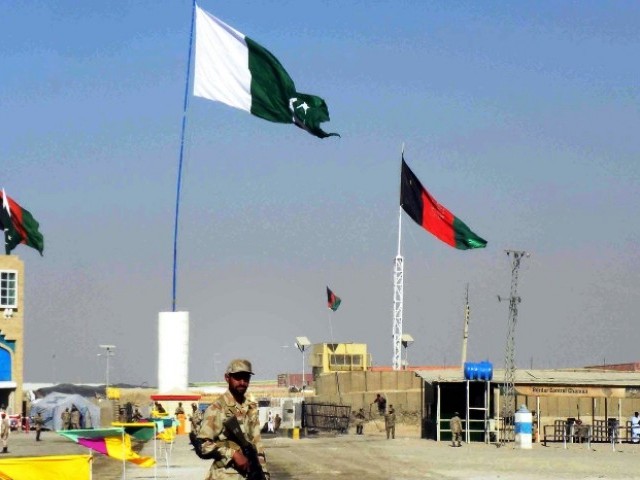
Security of our western border amid Covid-19
With increasing reports of the Pakistani Taliban sneaking back into the tribal districts from Afghanistan
While Pakistan remains immersed with the fight against Covid-19, its security predicament sees no respite from conflicts on its borders. The political uncertainty emanating from Afghanistan in the west and an unrestrained low-intensity conflict with India on the east keeps Pakistan fleet-footed about both its internal and external security.
On April 10, the government slashed Rs15 billion meant for rehabilitation of the temporary displaced persons of the newly merged tribal district of Khyber-Pakhtunkhwa (KPTDs), and added it to the security enhancement fund, thereby raising its overall allocation to Rs53 billion. The TDPs would now receive a total of Rs17 billion this fiscal year. The growing complexity of the threat spectrum on Pakistan’s western periphery, especially the KPTDs, seems to require additional resources. How and where this amount will be used is yet to be seen. But one potential area could be to beef up the security infrastructure in the newly-merged tribal districts of K-P to fend against the region’s growing lawlessness.
The government’s plan included raising 14 additional wings of the Frontier Corps to protect the Pak-Afghan border by 2019, but that has yet to be achieved. Similarly, Rs9.6 billion are required to build law enforcement institutions in the region, like raising a potent police force; building police infrastructure; acquiring vehicles and arms; putting a telecommunication system in place; and training existing colonial-era Khasadar and Levy forces. Added to this is the ongoing fencing of the Pak-Afghan border.
There are increasing reports of the Pakistani Taliban sneaking back into the tribal districts from Afghanistan, which has led to an uptick in incidents of terrorism and intelligence-based operations. Similarly, certain recent instances of tribal justice administered through traditional jirgas seem to undermine the writ of the state, since law enforcement institutions are either weak or absent to deal with the region’s law and order.
Political uncertainty in Afghanistan as a consequence of a faltering peace agreement signed in February further adds to Afghanistan’s volatility. Militant violence there continues unabated and the defensive posture of the Afghan National and Security Forces (ANSF) tends to encourage the spread of the Taliban in the country. Similarly, the possible spread of Covid-19 in Afghanistan may see the beleaguered Afghan civilians and militants entering the tribal districts to seek medical treatment. These circumstances demand strengthening of local security and law enforcement institutions to deter the spoilers of socio-economic development in the newly-merged tribal districts.
While effective security sector reforms are a linchpin of a successful post-conflict reconstruction, the rehabilitation of tribal affectees is fundamental to creating social resilience against extremism. The government should invest in rebuilding physical infrastructure, compensate tribesmen to rebuild their homes and revive their livelihood. Arbitrary decisions like slashing the rehabilitation fund could further disillusion them.
And amid the Covid-19 spread, the already impoverished tribesmen could face dire situations. The region also needs immediate upgradation of health facilities to cater to the local population and prepare for any possible influx from across the border. There are currently less than a thousand public health facilities, which are short of equipment, human resource and medicines.
While Pakistan should not remain oblivious to its security needs, a successful post-conflict reconstruction requires a fair balance of the security-development nexus. Winning the hearts and minds of the local population remains pivotal to building social resilience in the war-ravaged tribal districts and pulling them out of a conflict trap.
Published in The Express Tribune, May 3rd, 2020.
Like Opinion & Editorial on Facebook, follow @ETOpEd on Twitter to receive all updates on all our daily pieces.










COMMENTS
Comments are moderated and generally will be posted if they are on-topic and not abusive.
For more information, please see our Comments FAQ